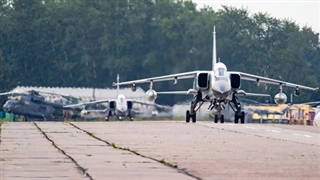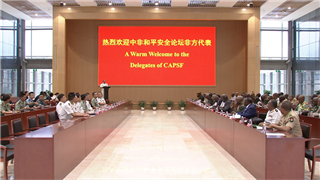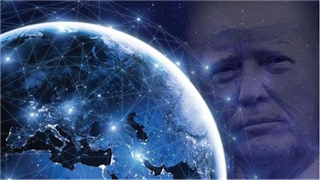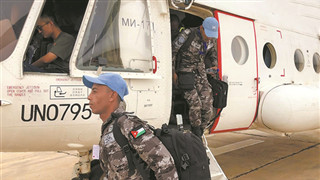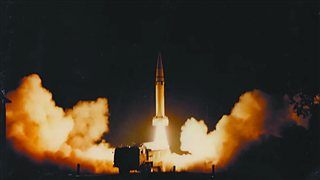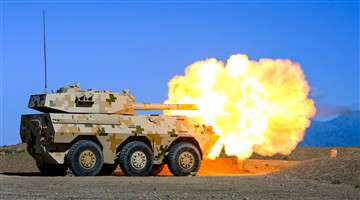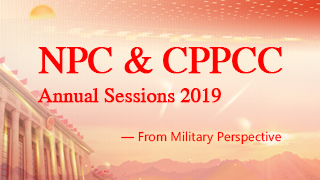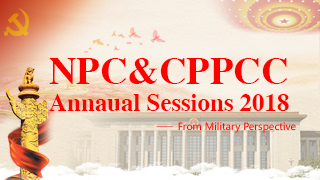The renewal of the Strategic Arms Reduction Treaty (New START), the only surviving arms control treaty between the US and Russia up till now, has been capturing close attention in the two countries and the international community. But recent reports from foreign media indicated that the Trump administration is indifferent to renewing the treaty, which made the negotiation prospects "unclear" for Russia.
Serious divergences within the US
In general, Washington hasn't reached a domestic consensus yet on whether to renew the New START.
Some congressmen didn't think Russia had well performed the provisions in the treaty, and two Republicans even filed a motion to the Congress demanding it not appropriate any funds to extend the treaty before Russia reduced its nuclear arsenal.
The American military believed the New START limited America's development of strategic nuclear weapons to some extent, and its renewal might put America in disadvantage in the global nuclear arms race since all other major powers are developing new-generation strategic nuclear power. This stance was reflected in the Nuclear Posture Review(NPR) published in 2018, which said the US military will modernize its nuclear weapons, nuclear infrastructure and carrier systems, lower the threshold of using nuclear weapons, and use nuclear weapons to cope with "non-nuclear strategic attacks".
Some US scholars held that the renewal of New START or the agreement on a new arms control treaty would be good for global security and stability. Think tanks such as the Bulletin of the Atomic Scientists and Arms Control Association published a series of articles by Hans M. Kristensen and other arms control experts recently. They asked Washington to start negotiating with Moscow about a renewal, claiming that a refusal to renew the treaty by Trump administration will seriously challenge the global nuclear security situation.
In fact, from the respects of the treaty’s original design intention and the way it has been executed in recent years, the New START did not put too much restraint on America's and Russia's strategic nuclear weapon development, nor did it effectively curb their development of strategic attacking approaches. The US has vigorously developed non-nuclear strategic deterrent powers like directed energy weapons and hypersonic weapons over recent years, and Russia has made great efforts to develop the Sarmat heavy liquid propellant intercontinental ballistic missile. That's why some people called the New START existing in name only.
The US and Russia (Soviet Union) signed three arms control treaties in history, the other two being the Treaty on the Limitation of Anti-Ballistic Missile Systems and Treaty between the U.S.S.R. and the U.S.A. on the Elimination of Their Intermediate-range and Shorter-range Missiles. As far as actual effect is concerned, the New START, the only surviving one of the three treaties, is still irreplaceable for containing the "quantitative growth" of strategic nuclear weapons in both countries, and is an important symbol and wind vane as it demonstrates the two powers' commitment to nuclear arms control. Particularly, the existence of New START has its value for maintaining the strategic communication and mutual trust between Washington and Moscow against the backdrop of their escalating strategic game.
The consequences of the New START going out of force should by no means be underestimated. First of all, the arms control system sustained by treaties between nuclear powers since the Cold War will collapse, and the US and Russia will go back to the state of pure strategic confrontation in the early stage of the Cold War when they had no treaty to abide by. Second, the mistrust among major countries will increase and future arms control dialogues and negotiations between military powers will be negatively affected.
Like many earlier arms control negotiations, the US-Russia negotiation on the renewal of New START will not be a plain sailing. According to reports by American media, the two sides will hold talks about the renewal in the fall this year and spring next year respectively. As their understanding of nuclear arms control and the treaty's effect differs greatly, substantial results are unlikely to yield from simply the two rounds of talks.
Some American media joked that the largest hope for renewing the New START is Trump’s defeat in the 2020 presidential election. Generally speaking, the two countries pushing nuclear disarmament is an inevitable trend in consideration of either their own interests or the global security. Let's hope that after much "higgle and haggle", Russia and the US will eventually reach a new deal that meets both of their expectations.
